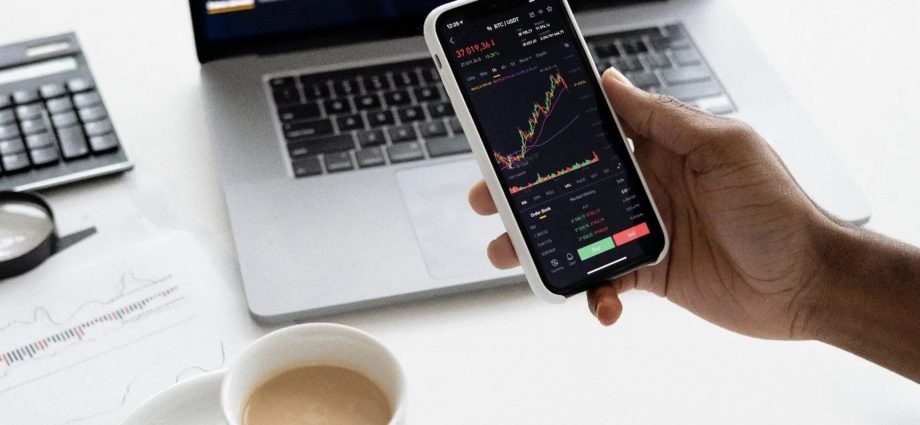Introduction
In today’s digital age, the financial landscape has evolved drastically, making it easier than ever for individuals to engage in trading and investments. With the advent of online platforms, the process of demat and trading account opening has become more streamlined, allowing people to access a wide range of investment opportunities from the comfort of their homes. However, as the world becomes more connected, the risks associated with online trading have also increased. This article delves into the crucial topic of online trading security, highlighting the importance of safeguarding your investments and personal information in this digital realm.
Overview of the Risks Involved in Online Trading
As online trading has gained momentum, so have the risks that come with it. Investors and traders are exposed to various threats that could potentially compromise their financial assets and personal data. Some of the key risks involved in online trading include:
- Phishing Attacks: Cybercriminals often send deceptive emails or messages to trick users into revealing their sensitive information, such as login credentials and personal details.
- Malware and Ransomware: Malicious software can infect devices, steal data, and even lock users out of their accounts until a ransom is paid.
- Identity Theft: Cybercriminals can use stolen personal information to impersonate individuals and access their trading accounts.
- Unauthorized Access: Weak passwords and inadequate security measures can lead to unauthorized access to trading accounts, potentially resulting in financial losses.
Understanding Online Trading Security
To counter these risks, it’s essential to understand the principles of online trading security. One significant aspect is the concept of the 2 in 1 trading account, which combines a trading account and demat account into a single package. This integrated approach ensures seamless transactions and simplifies the investment process while offering enhanced security features to protect your funds and information.
Safeguarding Your Investments
Protecting your investments requires a proactive approach. Here are some essential measures to contemplate:
- Strong and Unique Passwords: Create complex passwords that combine letters, numbers, and special characters. Implement two-factor authentication to enhance your security defenses.
- Secure Trading Platforms: Opt for reputable and regulated trading platforms that provide advanced security features and encryption protocols. Ensure the platform offers SSL encryption to protect your data during transactions.
- Regular Software Updates: Keep your trading software and devices updated with the latest security patches. This helps prevent vulnerabilities that cybercriminals might exploit.
Protecting Personal Information
Your personal information is a valuable asset that needs protection. Here’s how to safeguard it:
- Data Privacy Practices: Limit the sharing of personal information online and be cautious about what you share on social media platforms.
- Avoiding Phishing Scams: Be vigilant about emails and messages that ask for sensitive information or contain suspicious links. Verify the legitimacy of communication before responding.
- Secure Wi-Fi and Network Usage: Use secure networks for your trading activities, and avoid conducting transactions over public Wi-Fi networks that may be vulnerable to attacks.
Educating Yourself and Staying Informed
Staying informed about online security threats is crucial. Consider these steps:
- Recognizing Red Flags: Be aware of unusual account activity, unexpected requests for personal information, or suspicious messages.
- Learning from Case Studies: Familiarize yourself with real-life examples of security breaches in online trading. Extract lessons from these incidents to enhance your own security practices.
- Keeping Abreast of Security Trends: Follow industry news and updates to understand evolving security threats and learn about best practices to stay protected.
Brokerage and Platform Security Measures
Reputable brokerage firms and trading platforms prioritize security. Here are some measures they often implement:
- Brokerage Account Protections: Some accounts, such as those provided by the Securities Investor Protection Corporation (SIPC), offer insurance against potential brokerage firm failures.
- Multi-Layered Security Approaches: Many platforms incorporate biometric authentication and behavioral analysis tools to detect and prevent fraudulent activities.
Reporting and Responding to Security Incidents
In the unfortunate event of a security breach, taking immediate action is essential:
- Immediate Steps in Case of a Breach: Contact your brokerage or trading platform to report the incident. Update your passwords and fortify your account security.
- Reporting to Authorities: If necessary, involve law enforcement and regulatory bodies to address the breach and potentially prevent further damage.
Conclusion
Online trading provides exciting opportunities for investors and traders, but it also comes with its fair share of risks. Demat and trading account opening has become more accessible, but it’s crucial to prioritize security. By adopting strong security practices, staying informed about potential threats, and choosing reputable platforms, you can significantly mitigate the risks associated with online trading. Remember, your financial well-being and personal information are at stake. As you navigate the world of online trading, make use of the best stock trading app to manage your investments securely and efficiently.

